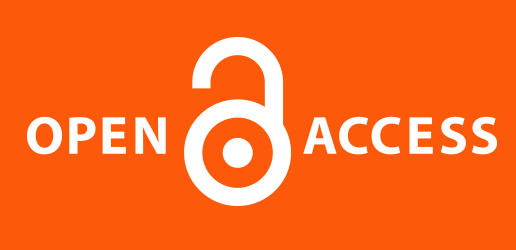
Application and Practice of Digital Technology in Ideological and Political Education in College English
摘要
With the rapid development of information technology, the application of digital technology in the global education field has become increasingly widespread. In higher education, in particular, the integration of digital teaching tools and resources has become a key strategy for enhancing teaching quality and efficiency. Ideological and political education in universities is essential for fostering students' correct values, social responsibility, and political literacy. This paper investigates strategies for applying digital technology in college English ideological and political education. By digitally reconstructing teaching objectives, mining digital ideological and political elements, innovating teaching methods digitally, and optimizing teaching evaluation digitally, ideological and political education is effectively integrated into English teaching, cultivating students' comprehensive qualities, which has become an important research direction.
1 Research Origin
1.1 Research Background
With the rapid development of computer technology, the internet, artificial intelligence, big data, and cloud computing, digital technology has profoundly influenced various societal fields, including higher education. Digital technology is transforming traditional teaching models, promoting education towards a more personalized and interactive direction. College English courses are increasingly integrating socialist core values, political identity, national consciousness, cultural confidence, and civic personality into their teaching content, achieving a seamless blend of language instruction and ideological and political education. By leveraging digital tools such as big data analysis, artificial intelligence, and virtual reality technology, teachers can tailor teaching content, offer personalized learning pathways, and enrich students' learning experiences and emotional engagement. The development of ideological and political education in college English courses aims to cultivate high-quality talents with international perspectives, cultural confidence, and social responsibility, providing solid support for the cause of socialism with Chinese characteristics[1].
1.2 Research Purpose and Significance
The primary objective of this research is to explore the integration of digital technologies into college English ideological and political courses, innovate teaching models, and improve teaching effectiveness. By leveraging technologies such as artificial intelligence and big data, a blended teaching model that integrates online and offline approaches can be developed, enhancing the fusion of ideological and political education with language teaching. Additionally, the research aims to promote educational equity, enhance students' self-learning abilities, and establish a scalable digital teaching model through the deep integration of technology and ideological education. This will provide substantial support for the reform of college English teaching.
2 Literature Review
2.1 Application of Digital Technology in Education
With the widespread adoption of the internet, online learning platforms and tools have gained significant traction in education. These platforms provide students with flexible learning methods, breaking the limitations of time and space. Major platforms include MOOC (Massive Open Online Courses), such as Coursera, edX, and China's XuetangX. These platforms provide courses from top universities worldwide, covering multiple disciplines and are particularly suitable for self-directed learning. LMS (Learning Management Systems), such as Moodle and Blackboard, provide schools and teachers with course management, assignment submission, and grade tracking functions, supporting blended and fully online teaching. Video conferencing tools, such as Zoom, Microsoft Teams, and DingTalk, play an important role in remote teaching, supporting real-time interaction and virtual classrooms. Interactive learning tools, such as Kahoot and Mentimeter, enhance students' classroom participation and learning interest through online quizzes, polls, and real-time feedback. Digital technology facilitates the extensive use of multimedia resources, such as videos, audio, and animations, in education. These resources make abstract concepts more tangible, aiding students in better understanding and retaining knowledge. Virtual reality (VR) and augmented reality (AR) technologies can help teachers create immersive learning environments for students. enhancing the learning experience. For example, VR technology can be used to simulate historical scenes, enhancing the appeal and engagement of ideological and political education. Combining online and offline resources, the "flipped classroom" model, where students self-study through multimedia resources before class and engage in interactive discussions and in-depth understanding during class, has been widely adopted globally.
2.2 Connotation and Current Status of Ideological and Political Education in College English Courses
Current college English courses typically include basic English, academic English, and professional English modules, designed to improve students' comprehensive English skills, especially in listening, speaking, reading, and writing. The teaching content generally includes language knowledge (grammar, vocabulary), cultural background knowledge, and academic skills (such as thesis writing and presentation skills), but the integration of ideological and political education remains limited[1].The cultural background of China significantly influences the role perception of foreign language teachers, and we must ground the theory of foreign language teacher development in the local context of China.
The core mission of ideological and political education in college English courses is to foster moral and intellectual development, guiding students to establish correct worldviews, life perspectives, and values through English teaching. English learning also bolsters their ability to disseminate Chinese culture in cross-cultural exchanges. Emphasizing the combination of instrumental and humanistic aspects, college English courses have dual instrumental and humanistic qualities. Ideological and political education requires that while cultivating students' English language abilities, attention should also be paid to the improvement of humanistic qualities. By fostering students' international perspectives and national sentiments, they are better equipped to understand and engage in international affairs within the context of globalization[2-4].
2.3 Existing Research on the Integration of Digital Technology and Ideological and Political Education
In recent years, researchers have conducted extensive studies on extensively explored the application of digital technology in college English teaching, focusing on how to improve the efficiency and effectiveness of language teaching through technology. Using multimedia resources, online learning platforms, and mobile applications can effectively enhance students' interest in English learning and self-learning abilities. For example, English learning apps based on mobile devices (such as Shanbay Words and Baicizhan) have shown significant effects in vocabulary learning. Through online discussion forums and collaborative platforms like Google Docs, students can participate in more effective cooperative learning, thereby improving their practical language application skills.
Currently, some studies have begun to explore how to integrate ideological and political education with English teaching, such as selecting reading materials with ideological and political education significance and discussing social hot topics, helping students improve their ideological and political literacy while learning the language. A detailed analysis of these three aspects provides a solid theoretical foundation and practical reference for the research on 'Application and Practice of Digital Technology in College English Ideological and Political Education.' This will help to deeply understand how to effectively integrate ideological and political education into college English courses and explore the feasibility of using digital technology to innovate teaching methods.
3 Theoretical Basis for Integrating Ideological and Political Education into College English Courses
3.1 Ideological and Political Education Theory
Ideological and political education in higher education has always been regarded as an important way to cultivate socialist builders and successors. Relevant policy documents issued by the Central Committee of the Communist Party of China and the State Council clearly require that university courses be closely integrated with ideological and political education, comprehensively promoting the construction of "curriculum ideological and political education." Curriculum ideological and political education represents a significant reform initiative in China's educational field in the new era. Its core objective is to 'foster moral and intellectual development,' emphasizing the integration of knowledge imparting, ability cultivation, and value guidance. The theory of curriculum ideological and political education, with value guidance as the core, deeply explores the ideological and political education resources contained in the curriculum, such as philosophical thoughts, scientific spirit, cultural heritage, and moral norms, in the process of imparting professional knowledge, so that students can be influenced by ideological and political education while learning professional knowledge, achieving the unity of knowledge imparting and value guidance. Ability cultivation is also an important part of curriculum ideological and political education, emphasizing that students should not only master knowledge but also possess the ability to apply knowledge to solve practical problems in the learning process. This includes critical thinking, innovative ability, and practical ability. In curriculum ideological and political education, ability cultivation and value guidance are closely integrated, enabling students to apply their skills in practice while fostering a sense of social responsibility and mission through practical teaching and project-based approaches[5].
3.2 Digital Learning Theory
The theory of digital learning in higher education is an educational concept and practice model gradually formed with the rapid development of information technology, aiming to promote the transformation and innovation of higher education through digital technology, improving learning effectiveness and educational quality. Digital technology has brought rich resources and innovative teaching methods to higher education, such as online courses, virtual classrooms, and multimedia resources. These technologies can make ideological and political education content more vivid and engaging, enhancing students' learning interest and participation. For example, through virtual reality technology, students can "enter" historical scenes, experience revolutionary stories, and deeply understand the spirit of patriotism. Digital technology also facilitates personalized learning, enabling students to independently select ideological and political education content based on their interests and needs. This learning method not only helps to improve students' self-learning abilities but also subtly strengthens their recognition of socialist core values. For example, by playing videos related to socialist core values on online platforms and organizing cross-cultural discussions, students can understand and gain a profound understanding of the content and significance of ideological and political education while learning the language[2].By deeply exploring the elements of curriculum ideological and political education and seamlessly integrating them into teaching, an educational effect of subtle yet profound influence can be achieved.
4 Application Strategies of Digital Technology in College English Ideological and Political Education
4.1 Digital Reconstruction of Teaching Objectives
In college English ideological and political courses, digital teaching objectives should be clearly defined, integrating language knowledge and skill objectives, ideological and political education objectives, and digital literacy objectives to establish a diversified teaching objective system. By utilizing digital teaching resources, such as online dictionaries and grammar practice platforms, students can master the core vocabulary and grammar structures required by the course, thereby enhancing their foundational language skills. Multimedia resources, such as English news videos, audio materials, and online reading materials, to conduct listening, speaking, reading, and writing training, improving students' comprehensive language application abilities.Ideological and political elements, such as excellent Chinese traditional culture and socialist core values, should be integrated into teaching to guide students in establishing correct worldviews, life perspectives, and values. Combine English materials with Chinese cultural themes, such as the 'China Daily' public account, enable students to experience the charm of Chinese culture while learning the language, thereby enhancing their cultural confidence. Introduce current affairs and social phenomena, guiding students to pay attention to social issues and cultivate their sense of social responsibility and critical thinking. Students should develop the ability to use digital platforms, such as Chao xing Learning Platform and Rain Classroom, for self-directed learning, mastering the retrieval, screening, and utilization of online learning resources. Through digital teaching activities, such as data analysis and information processing, improve students' information literacy, equipping them to effectively process and analyze various information in learning. Encourage students to participate in digital projects, such as making English videos and writing English papers, improving their digital technology application abilities.
4.2 Digital Mining and Presentation of Ideological and Political Elements
In college English ideological and political courses, digital resources should be utilized to mine ideological and political elements from teaching materials. Online databases and multimedia material libraries can be combined to locate resources related to Chinese traditional culture, socialist core values, and international cooperation. Use online databases (such as CNKI and Wanfang Data) to search for English literature and research articles on Chinese traditional culture. Use platforms such as Xuexi Qiangguo to obtain the latest political news and interpretations of socialist core values. For example, when teaching the "Life Stories" unit, celebrity stories can be used to guide students in reflecting on the values of professionalism and friendliness demonstrated by successful figures. Use multimedia material libraries (such as Chinese University MOOC Platform and Tencent Video) to showcase the charm of Chinese traditional culture through documentaries and short videos, such as "A Bite of China" and "If National Treasures Could Talk," helping students better understand the relevant themes in the teaching materials. Teachers can systematically analyze college English teaching materials to create a 'Curriculum Ideological and Political Elements Map'.' identifying the entry points for ideological and political elements in each unit. Digital resources should be flexibly integrated into the teaching content. For example, when teaching the "Facing the Global Climate" theme, introduce multimedia resources such as news reports and documentaries on global climate change to enhance students' understanding and recognition.
4.3 Digital Innovation of Teaching Methods
Online discussion platforms, such as Moodle and Canvas, enable teachers to facilitate discussions on ideological and political topics beyond the classroom. This method can break the limitations of time and space, fostering intellectual exchanges among students and deepening their understanding of ideological and political education content. Virtual classrooms can conduct real-time teaching through video conferencing tools (such as Zoom and Microsoft Teams), where teachers can organize debates and role-playing activities in virtual classrooms, integrating ideological and political education elements into English learning. For example, debate on international relations or cultural conflict issues, allowing students to think about China's role and responsibility in the process of globalization while expressing their views. Through project-based learning (PBL), students can engage in solving practical problems. For instance, a project titled 'Sino-British Dialogue on Sustainable Development' can require students to write English reports integrating ideological and political education content. This not only develops their language skills but also strengthens their sense of social responsibility.
5 Challenges and Countermeasures of Digitalization in College English Ideological and Political Courses
In college English ideological and political courses, the application of digitalization brings both opportunities and challenges. The following are the main challenges and corresponding countermeasures of digitalization in college English ideological and political courses.
5.1 Challenges
5.1.1 Insufficient Development and Utilization of Teaching Resources
The development and utilization of digital teaching resources demand substantial human, material, and financial investment. Due to insufficient funding or technical constraints, some universities struggle to provide adequate digital teaching resources. While the internet offers abundant English teaching resources, materials suitable for ideological and political education are relatively limited, necessitating significant time from teachers to screen and integrate them. Additionally, existing digital resources often lack pertinence and systematicity, making it difficult to directly meet the needs of ideological and political education.
5.1.2 Teachers' Information Literacy Needs Improvement
Some English teachers lack a sufficient understanding of modern educational technology, exhibit limited awareness of active learning, and are not proficient in using digital resources, which negatively impacts teaching effectiveness. When integrating ideological and political elements with digital teaching resources, teachers lack scientific and effective methods,resulting in a disconnection between ideological and political education and language teaching. At the same time, some teachers only use digital teaching tools superficially, failing to fully exploit their potential.
5.1.3 Significant Differences in Students' Digital Skills
Students exhibit significant variations in digital literacy and skill levels, often due to personal backgrounds and prior educational experiences. This makes it challenging for some students to adapt to the digital learning environment. Additionally, some students have low interest in digital learning and lack self-learning abilities, affecting their learning outcomes.
5.1.4 Integration of Digital Teaching and Traditional Teaching Models
While digital teaching offers abundant resources and flexible learning methods, effectively integrating it with traditional teaching models remains a significant challenge. Some teachers, when using digital tools, overlook the advantages of traditional teaching, resulting in poor teaching effectiveness.
5.2 Countermeasures
5.2.1 Optimize Teaching Resource Allocation
Universities should enhance investment in digital teaching resources, establish digital teaching resource libraries, integrate high-quality resources, and improve the sharing and accessibility of resources.Teachers can utilize existing online course platforms, such as Chinese University MOOC and Chaoxing Learning Platform, to access rich ideological and political materials, which can then be integrated into teaching content after careful selection. Additionally, universities can cooperate with enterprises to develop digital teaching resources suitable for ideological and political education, ensuring the pertinence and practicality of the resources.
5.2.2 Enhance Teachers' Information Literacy
Teacher training should be strengthened to enhance their understanding and application of modern educational technology, while encouraging them to actively learn and explore digital teaching methods. Internal and external exchange activities should be organized to share successful experiences and cases of digital teaching, enabling teachers to better integrate ideological and political elements into their digital teaching practices. Additionally, universities can establish special funds to support teachers in conducting digital teaching research, improving their information literacy.
5.2.3 Pay Attention to Differences in Students' Digital Skills
In teaching, teachers can implement differentiated instruction based on students' digital skill levels, offering personalized learning guidance and support tailored to each student's needs.Intelligent teaching platforms can be used to automatically adjust teaching content and difficulty based on students' learning progress and abilities, ensuring a positive digital learning experience for all students. At the same time, universities can offer digital literacy courses to help students improve their digital skills and narrow the digital divide among students.
5.2.4 Promote the Integration of Digital Teaching and Traditional Teaching
Teachers should combine the advantages of digital teaching and traditional teaching to design diverse teaching activities. For instance, digital tools can be used for interactive classroom teaching, while traditional discussion and writing sessions are retained, ensuring students engage fully in both language learning and ideological and political education. Additionally, teachers can provide more flexible learning opportunities for students through a combination of online and offline methods.
5.2.5 Deepen the Exploration of Ideological and Political Content
In digital teaching, teachers should prioritize deepening the exploration of ideological and political content, integrating current affairs and social issues to design engaging and thought-provoking teaching materials. For example, case analysis and role-playing can be used to encourage students to reflect on cultural differences and value conflicts in English learning, thereby enhancing their cultural confidence and sense of social responsibility.
5.2.6 Establish a Scientific Evaluation System
Universities should establish a scientific evaluation system to comprehensively assess the effectiveness of digital teaching. By analyzing student feedback, teaching observations, and data, the strengths and weaknesses of digital teaching can be identified, allowing for timely adjustments to teaching strategies. At the same time, teachers can track students' learning progress in real-time through online tests and assignment submissions, providing targeted guidance.
By implementing the above counter measures, the challenges of digitalization in college English ideological and political courses can be effectively addressed, maximizing the benefits of digitalization to enhance the effectiveness of ideological and political education. Digitalization not only offers rich resources and flexible teaching methods for college English ideological and political courses but also fosters the development of students' comprehensive qualities and innovative abilities. In the future, universities and teachers should continue to explore innovative digital teaching models, driving the ongoing development of college English ideological and political courses.
References
[1] Huang Wenhong. An Empirical Study on the Role of College English Teachers Based on Inductive Metaphor Analysis Method [J]. Examination and Evaluation (College English Teaching and Research Edition), 2022(121):14-24.
[2] Yang Xuefeng, Chu Hongbin. Ideological and Political Courses and Curriculum Ideological and Political Education. Shaanxi: Shaanxi People's Publishing House, 2022:35
[3]Liqi Z ,Jigang Z .Exploration of the Path of Integrating Red Culture into Ideological and Political Education in Colleges and Universities in the "Asking the Canal" Practical Activity[J].Communication & Education Review,2025,6(1):30-45.
[4]Chun Y ,Fu X .An Exploration of the Construction of Ideological and Political Education Model in College English Courses: A Study on the “BOPPPS + Blended” Teaching Model[J].Pacific International Journal,2024,7(6):25-30.
[5]Tieyuan W .The Way to Infiltrate Ideological and Political Education in College English Teaching[J].Education Reform and Development,2024,6(11):170-175.
如何引用
参考
Huang Wenhong. An Empirical Study on the Role of College English Teachers Based on Inductive Metaphor Analysis Method [J]. Examination and Evaluation (College English Teaching and Research Edition), 2022(121):14-24.
Yang Xuefeng, Chu Hongbin. Ideological and Political Courses and Curriculum Ideological and Political Education. Shaanxi: Shaanxi People's Publishing House, 2022:35
Liqi Z ,Jigang Z .Exploration of the Path of Integrating Red Culture into Ideological and Political Education in Colleges and Universities in the "Asking the Canal" Practical Activity[J].Communication & Education Review,2025,6(1):30-45.
Chun Y ,Fu X .An Exploration of the Construction of Ideological and Political Education Model in College English Courses: A Study on the “BOPPPS + Blended” Teaching Model[J].Pacific International Journal,2024,7(6):25-30.
Tieyuan W .The Way to Infiltrate Ideological and Political Education in College English Teaching[J].Education Reform and Development,2024,6(11):170-175.
版权
未提供许可协议








